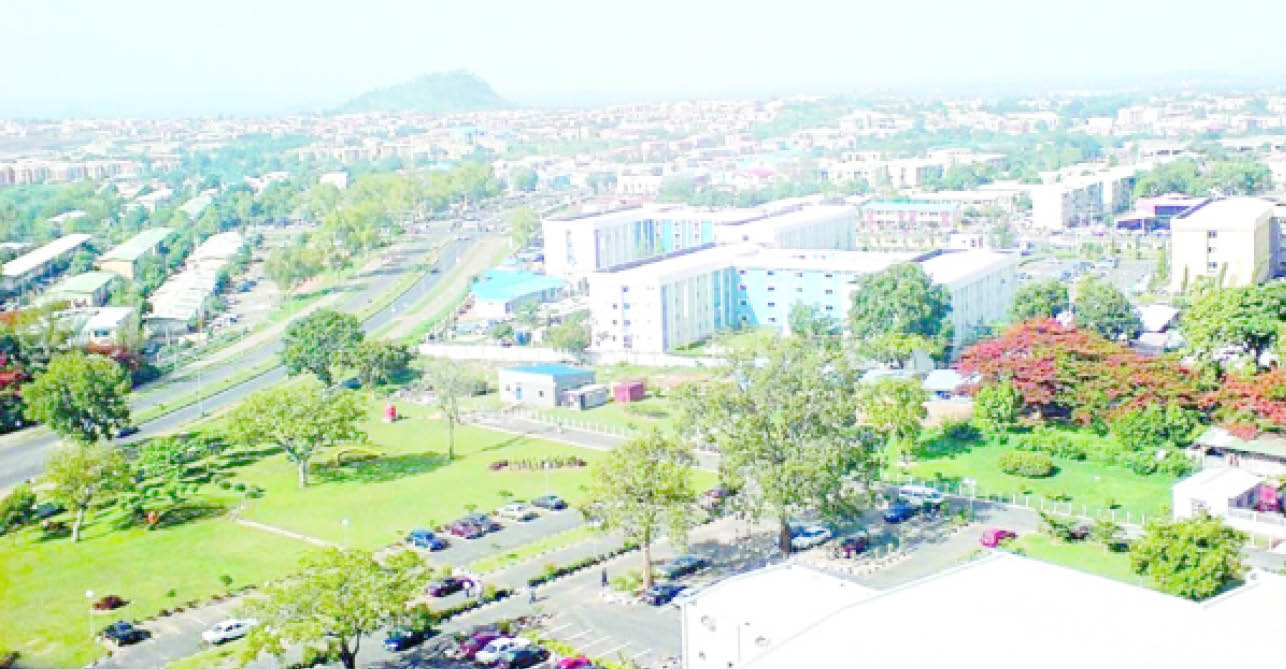In the last year, residents and newly migrated persons have groaned over the increased rent prices in Abuja. This feature highlights some of the experiences faced by residents and also reasons for the hike in rent prices.
Doris Dauda, a beautician who lives in Gwarimpa, Abuja, has decried the high cost of rent in the capital city. She said Gwarimpa Estate, the acclaimed single largest estate in West Africa, used to be an ideal suburb for young, upcoming working-class citizens because rent was affordable there but it has become a highbrow area overnight.
“Rent has gone up so much that it is just kind of crazy and the landlords are not just being considerate at all. At the end of the day, you are just using the money you’re working for to pay rent.”
She said she is paying N1.5 million for a one-bedroom flat that used to be between N700,000 and N900,000 just over a year ago.
Ortom to give N60m to families of slain security personnel in Benue
NSIA grows assets to N1trn in 2022 financial year
Daily Trust Saturday findings have also shown that rent increment has occurred across districts in the capital city at over 100 per cent rate, draining the lean resources of the tenants who now struggle to meet the three basic needs of food, clothing and shelter.
“A duplex in Maitama, the most exquisite and standout district with high end property niche, now goes for between N15m and N20m per annum, whereas it used to cost just about N7m to N8m a couple of years ago. The worst part is that the owners of these properties are not ready to take one year rent again. They insist it must be two years upfront payment,” Charles Ateke, an estate agent with Penthouse Properties Nigeria Ltd, said.
He said in districts like Utako, Wuye, Jabi and Asokoro, rent has also gone up 100 per cent, saying a three-bedroom flat which used to cost N1.5m to rent in Utako is now N3m. He added that in highbrow districts with well- developed infrastructure like Guzape, the rent is prohibitive.
He said he was unable to get a one room self-contained house for one of his clients in Gwarimpa last week because of the high cost of rent.
Another tenant, Moses Emmanuel, said he is always defaulting and having to beg his landlord in the past two years because of the harsh economic situation in the country.
Although his rent where he lives in Kugbo, near Asokoro, has not increased up to 100 per cent, but the inflation in the country has bastardised the value of the naira, so it has become very difficult to save money to pay his rent.
Emmanuel, who has a wife and three children and lives in a one-bedroom flat, said he used to pay N450,000 but has been asked to start paying N600,000.
“The increase where I am living is not as much as what is obtained in other areas of Abuja, I still find it difficult to pay as at when due. I tried looking for a cheaper accommodation but it is hard to get a vacant house,” he said.
A landlord in Nyanya, a suburb of the capital city, Alhaji Usman Bukar, said the cost of producing a house has doubled in the past two years due to inflation which has impacted hugely on the cost of building materials.
He said the property market operates just like other businesses where profit making is the main motive. He, however, explained that in the case of property investment, returns don’t come immediately since it’s a lifetime investment.
“Property business is a life-long investment and in as much as you’re in it for profit, you have to be patient to recoup your investment. So, it becomes very difficult to fix rent at a giveaway rate if you look at the cost of acquiring land and going through the full circle of building,” he added.
Mr Emmanuel Alao, a former Federal Capital Territory (FCT) chapter chairman of the Nigerian Institution of Estate Surveyors and Valuers (NIESV), said the high cost of rent in the capital city is first and foremost as a result of inflationary trend in the country. He said the country is plagued by the highest inflation rate in recent years thereby impacting on the cost of building materials and cost of labour.
According to the National Bureau of Statistics (NBS), the annual inflation rate in Nigeria accelerated for a second month to a near 17 and a half-year high of 21.91per cent in February 2023, from 21.82 per cent in January. Prices of food, which is the most relevant in the Consumer Price Index (CPI) basket, climbed further to 24.35 per cent in February, after jumping by 24.32 per cent in the preceding month of January, partly due to the scarcity of the redesigned naira notes and persistent food shortages.
The (CPI) measures the change over time in prices of 740 goods and services consumed by people for day-to-day living. The index loads are based on expenditures of both urban and rural households in the 36 states. The most important categories in the CPI are: Food & Non-alcoholic Beverages (52 per cent of the total weight), Housing, Water, Electricity, Gas & Other Fuel (17 per cent), Clothing & Footwear (8 percent). Transports account for 7 per cent and Furnishings & Household Equipment Maintenance for 5 per cent. Others include Education (4 per cent); Health (3 per cent); Miscellaneous Goods and Services (2 per cent); Restaurants and Hotels (1 per cent); Alcoholic Beverages, Tobacco & Kola (1 per cent); Recreation & Culture (1 per cent); and Communications (1 per cent).
Alao also said population surge in the city due to the insecurity in the north and other parts of the country has made Abuja assume the status of a “safe haven” where people from the troubled areas come to seek refuge.
“The migration trend has created high demand for houses in the city. Whereas the big properties are vacant, the small ones are in short supply, thereby driving the demand curve upwards. But the saddest thing is that developers are not building for the lower niche of the property market because of the dynamics of cost of construction and return on investment. You acquire land at a huge cost in the FCT and with the skyrocketing cost of building materials, it is not feasible to build affordable housing to bridge the demand,” he said.
He also said the current FCT minister has not been able to develop new districts and provide infrastructure in old ones, thereby slowing down real estate development in the territory.
For Terungwa Sabe, a certified estate surveyor and valuer, the main trigger for the rent hike is population explosion. He said the influx of people fleeing violence from the north-east, north-central and north-western parts of the country and coming to Abuja is unprecedented and that has put pressure on the housing sector in the city.
He said, “the population increase in the city has raked up demand for housing and landlords have taken advantage of that to hike the rent. When the new people, who are desperate to get accommodation, are able to pay the high rent, then the landlords would ask the sitting tenants to also pay.
“For instance around Lugbe, a two-bedroom flat which used to cost N600,000 to rent now goes for N1million and above, because the demand is there and some people are willing to pay.”
Daily Trust Saturday further gathered that cost of building materials like cement, iron rods, roofing sheets, sanitary wares and finishing accessories have all hit the roof.
The 9th Senate in 2022 moved to ameliorate the hardship faced by tenants in paying rent in the FCT by regulating the mode of payment of rent.
Senator Smart Adeyemi sponsored a bill: “Advanced Rent (Residential Apartments, Office Spaces, etc) Regulation Bill 2022”, which has passed second reading and which seeks to regulate the mode of payment of rent and also criminalise the act of landlords demanding payment of advance rent from tenants.
The bill seeks to reduce advance payment of rents from one or two years by tenants to three months and subsequent monthly payments.
It remains to be seen if the bill will eventually become law and if it will be implemented to the latter.
Nigeria with a population of about 200 million people, has one of the highest housing deficits in the world. Nigeria’s housing deficit has grown progressively from 7 million housing units in 1991 to 12 million in 2007, 14 million in 2010 and subsequently 28 million in 2022.
Experts in the sector have repeated called for concerted efforts in addressing the housing challenge by asking the government to create enabling environment for the private sector to take the lead in driving affordable housing schemes across the country.
The experts have particularly called for the repeal of the land use act, a reform of the mortgage system and research institutions discovering cheaper alternatives for materials like cement.

 Join Daily Trust WhatsApp Community For Quick Access To News and Happenings Around You.
Join Daily Trust WhatsApp Community For Quick Access To News and Happenings Around You.


